The 100 best Marvel characters ranked: 20-1
See where the likes of Iron Man, Black Panther, Scarlet Witch, and Thor land in the final installment of our massive Marvel countdown

The A.V. Club’s countdown of Marvel’s top 100 onscreen characters concludes today with a look at the heroes, sidekicks, and villains who earned spots in the Top 20. Read on to see where the likes of Iron Man, Wolverine, Black Panther, Scarlet Witch, and Thor land.
And to check out the previous installments of the countdown, click on the big Marvel-red buttons below:
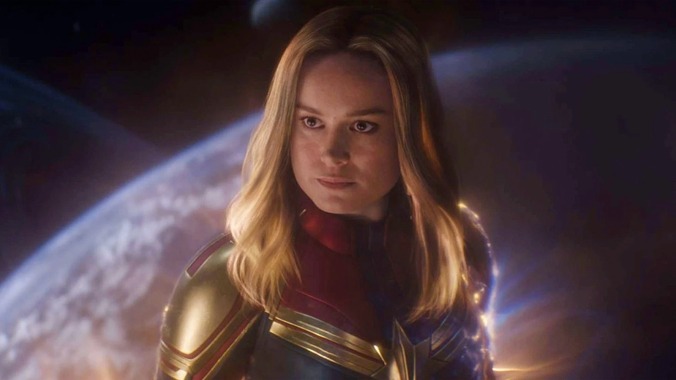
Marvel movies always have a lot of fun with the rare moments when extremely powerful characters are able to let loose and unleash all of their strength—like “puny god” in and Thor’s arrival in Wakanda in —but few of them have the punch (so to speak) of Captain Marvel fiiinallly joining the final battle in (after being awkwardly kept off the table for the entire movie) by effortlessly shredding Thanos’ mothership with her bare hands. Not only is it badass, but it’s a payoff to Jude Law’s character Yon-Rogg’s misogynistic attempts to diminish Carol’s power in . Being extremely strong and awesome is just who she is. Plus, just from a mythology standpoint, she’s so cool that she inspired Nick Fury to invent the Avengers in the first place, which has to be worth something. [Sam Barsanti]
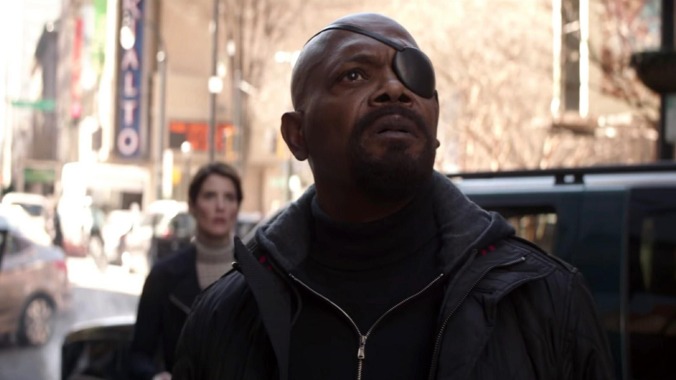
Did you know Marvel Comics redesigned the character of Nick Fury using Samuel L. Jackson’s likeness—years before the actor was cast in the MCU’s 2008 debut ? Such is the game-changing power of a Hollywood icon. Marvel’s big-screen saga just wouldn’t be the same without Jackson as the director of S.H.I.E.L.D. and the original assembler of Avengers. He can deliver steeliness, commanding power, and outrage, all from behind that signature eye patch. He’s no-nonsense without ever sacrificing comedy. And when, years from now, cinema historians look back at the legacy of these films and measure their impact, Jackson’s Fury will remain a prominent figure in the Universe. Or maybe it’s the other way around: of all the entertainment franchises to which Jackson has added gravitas (, , ), the MCU will end up as his most significant. [Jack Smart]
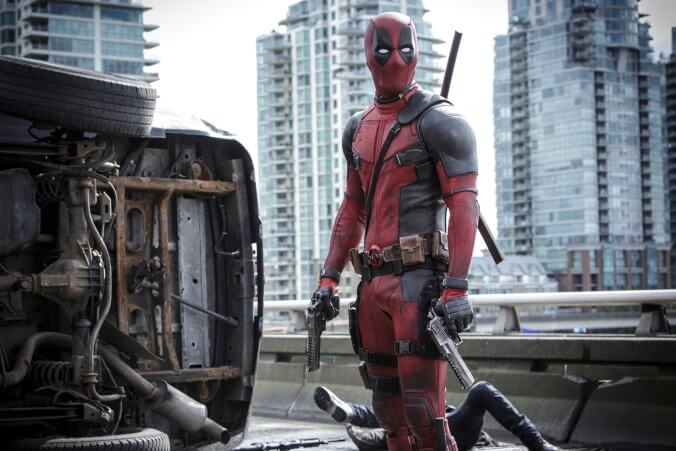
Ryan Reynolds’ first outing as Wade “The Merc with the Mouth” Wilson in got at least one thing right: The mouth. Wilson’s fast-talking, pop culture-referencing warrior was a welcome respite in an otherwise sloppy film, and fans spent years demanding the standalone adventure he deserved. When it finally came, in 2016's , the meta-fictional, fourth wall-breaking swan dive into ultraviolence and dick jokes felt like almost too much. But that’s the thing about Deadpool: He’s always too much, and that’s just the way he likes it. It’s no wonder that MCU mastermind Kevin Feige is talking about bringing the R rating to Marvel Studios just to preserve Reynolds’ particular brand of joke-a-minute blockbuster appeal. [Matthew Jackson]
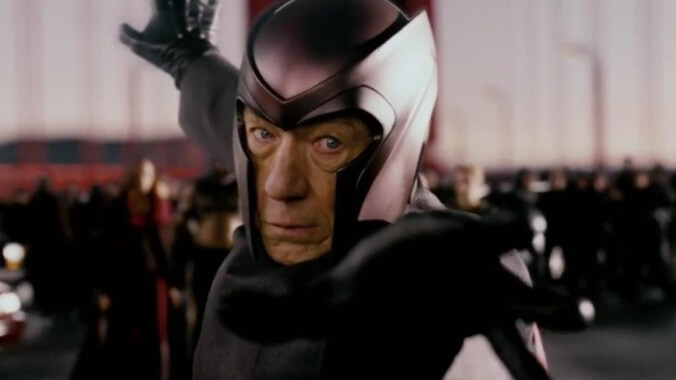
The mutant master of magnetism has always been one of Marvel’s greatest villains, with his darkest acts of violence fueled by supremely human emotions, and his turns toward good tinged by his taste for vengeance. Ian McKellen captured it all in the Fox films, laying out Magneto’s ethos of mutant supremacy with boundless charm—and managing the steely looks required to make a power that’s mostly “do a couple of arm gestures while the CGI folks do their thing” actually work. McKellen never lets you forget there’s a killer lurking beneath those honeyed words; he also makes it clear why Charles Xavier hopes eternally that his greatest friend might one day be redeemed. [William Hughes]
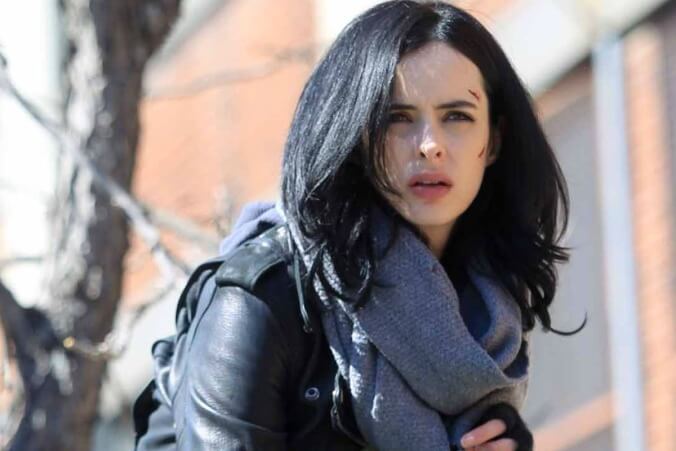
was remarkable in many ways. It was, technically, Marvel’s first female-led solo project (even if she’s since been exiled from the MCU canon). Tonally, it was darker than any live-action MCU project that came before it (though the series did have a sharp sense of humor). And Jessica herself, played to prickly perfection by Krysten Ritter, remains unique in the Marvel pantheon. Jess was a reluctant hero who couldn’t help herself from doing good, even when all she wanted was to self-destruct. The compounded trauma of her parents’ deaths and her non-consensual relationship with Kilgrave (David Tennant, one of the most chilling villains of all time) hardened her completely, but couldn’t stop her from caring about other people. Again and again, Jessica had to make impossible choices, often putting her in direct opposition to the people she loved, all while trying to pick up the pieces of a shattered life. It’s hard to imagine a Marvel hero in the Disney+ era directly confronting rape culture the way she did. Even beyond Marvel, few characters on television have depicted the reality of being a survivor like Jessica: not always likable, not always right, trying her best and failing and trying again. The super strength was cool too–but that was only ever a small part of what made Jessica Jones such an incredible hero. [Mary Kate Carr]
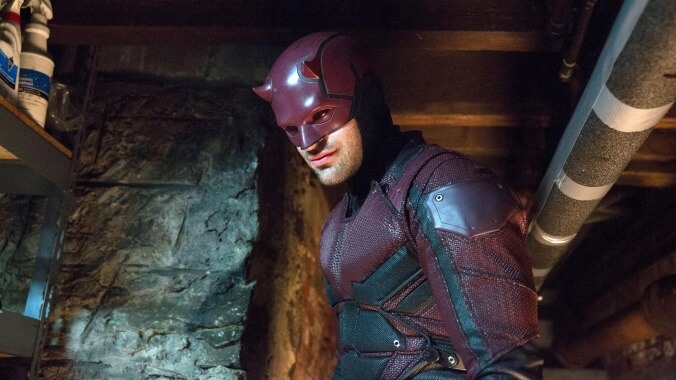
There are superheroes with tragic backstories, who use their dark and traumatic pasts to motivate them to be good people, and then there’s Daredevil. Matt Murdock was blinded as a child when radioactive chemicals splashed into his eyes, his reward for trying to save someone from being hit by a car. Then his father got murdered. Then his college girlfriend turned out to be evil. And due to a crushing, all-consuming culture of self-flagellation known as Catholic Guilt, nothing good he ever does will disabuse of him of the notion that he should be doing more. Oh, also, he’s a successful lawyer by day and a brutal vigilante crimefighter at night, overcoming his lack of eyesight with a “radar sense” that allows him to “hear” the world around him. Daredevil, The Man Without Fear, is one of the most emotionally compelling and thematically rich characters in the Marvel canon, if not the entire superhero genre. [Sam Barsanti]
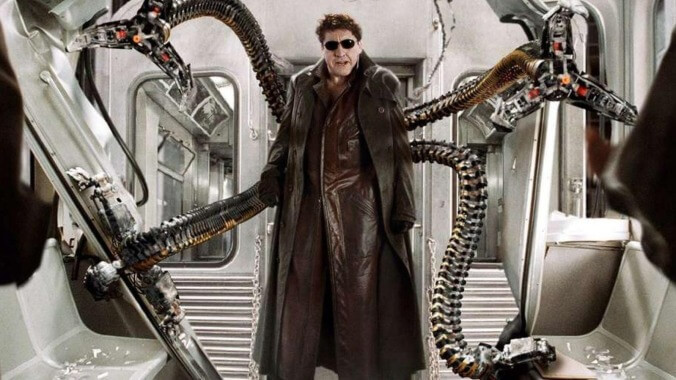
Of all the sympathetic mad scientists Peter Parker has fought over the years, Alfred Molina’s Otto Octavius has to be the most sympathetic—to the point that Marvel practically made a whole movie (last year’s ) out of a desire to save and redeem the character at last. And it’s hard to blame them: Then and now, Molina excels at both sides of Doc Ock, whether it’s the warm mentor figure trying to crack fusion power, or the cold-eyed psychopath he becomes once those pesky tentacles take full control. is a movie of big, beautiful, broad emotions, and its villain is no different, whether he’s menacing helpless old ladies, or taking a last-minute turn back toward the light. [William Hughes]
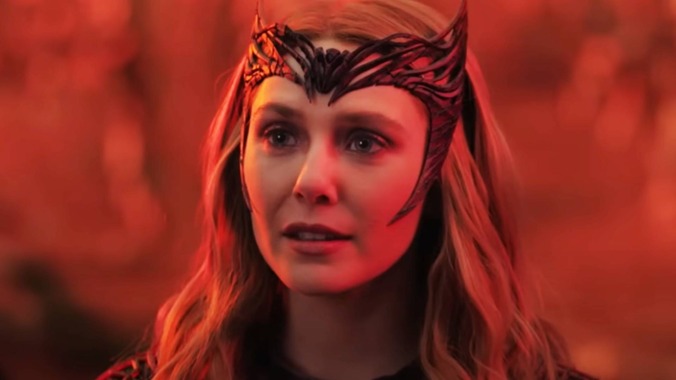
There were plenty of reasons to count Elizabeth Olsen’s Wanda Maximoff high on any round-up of Marvel characters from her very first MCU appearance, in 2015’s (unless you count a mid-credits scene in 2014’s ). Her eyes and hands glowed with witchy power, and bad guys—actually, good guys too—fell helpless before her. And to the extent that we can conjecture which Avenger is the most all-around powerful, this character, who almost single-handedly took down Thanos in , would be very high in that ranking. But Wanda’s real impact on the MCU peaked on the small screen when the 2021 series ushered in a new era for Disney and its streaming platform. Olsen’s Emmy-nominated delivery of Wanda’s dazzling, delightful, ultimately tragic transformation into the Scarlet Witch brought the MCU closer to prestige drama than it’s ever been. Plenty of the actors on this list have found nuance and pathos in their superheroic characters, but Olsen digging to Wanda’s deepest emotional depths is what makes this character unforgettable. [Jack Smart]
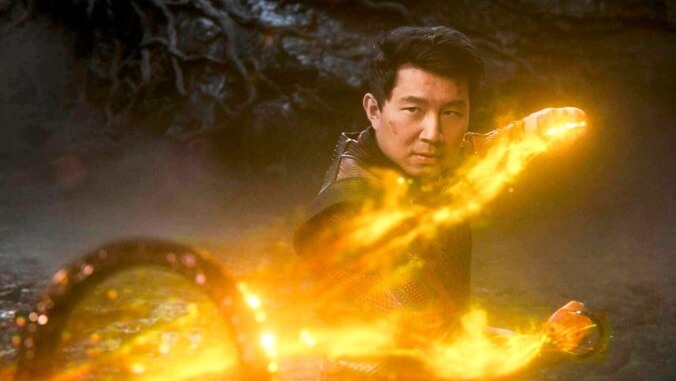
The good part about a post- universe is that Marvel is opening the doors for underrated and diverse superheroes with full-fledged comic books, including Ms. Marvel, Echo, Kate Bishop, and Moon Knight. The studio went big (literally, screen-wise too) with Shang-Chi’s introduction in . Simu Liu’s calm, confident take on the role helps bolster the superhero’s standing on The A.V. Club’s list. Shang-Chi not only confronts his past (being raised under a strict regimen by his father, Xu Wenwu), but also establishes his future as a major player in the MCU, as witnessed in the film’s post-credits scene. Shang-Chi is a compelling hero who is charting his own path, one that revolves around but isn’t solely dictated by his Asian heritage. [Saloni Gajjar]
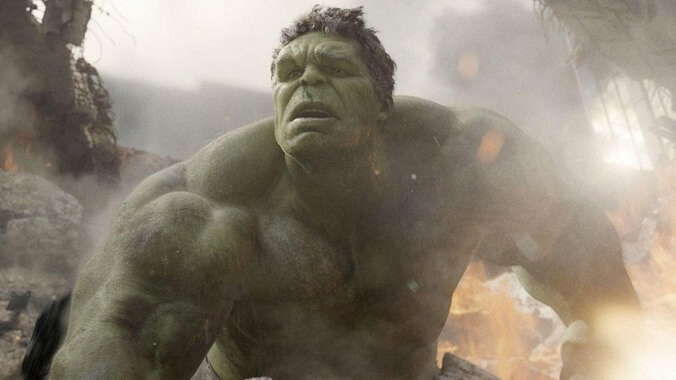
Mark Ruffalo entered as a substitute Hulk, and immediately burst out of Edward Norton’s shoes with a witty, restrained portrayal of a guy just trying to survive his own personal monster. The way he fidgets, slumps, and shrugs his way through meetings with the chiseled gods who are his teammates immediately sets him apart, and it accentuates the contrast when he finally explodes into action as the Other Guy. His recent evolution into a version of the Hulk that can co-exist with the super-genius human who created him hasn’t been fully explored just yet, but Ruffalo’s blend of humor and heart has already made him one of the MCU’s most valuable supporting players, even from behind a motion capture rig. [Matthew Jackson]
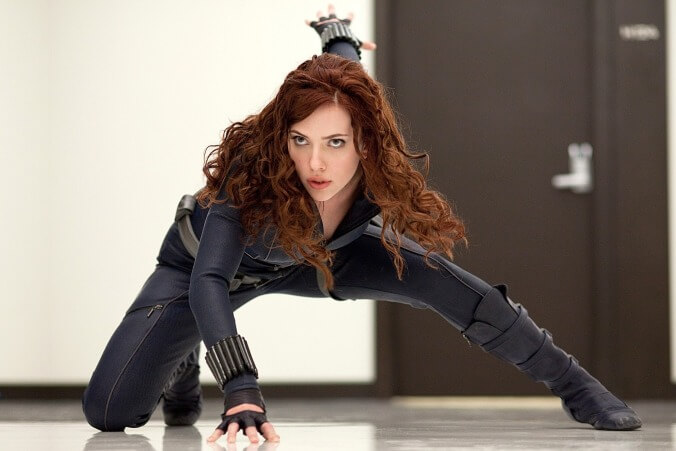
Black Widow weathered a lot in her decade of MCU adventures, from a divisive forced sterilization subplot to a slot as Captain America’s sidekick to an eventual solo movie that only came after her canonical death in . That Scarlett Johansson was able to deliver anything resembling a consistent performance feels like a minor miracle in the context of all of that. That she was able to command the attention of fans, even beyond her death, enough that Natasha Romanoff’s story demanded a standalone film even after a complete arc within the films, is a testament to the power of the character. [Matthew Jackson]
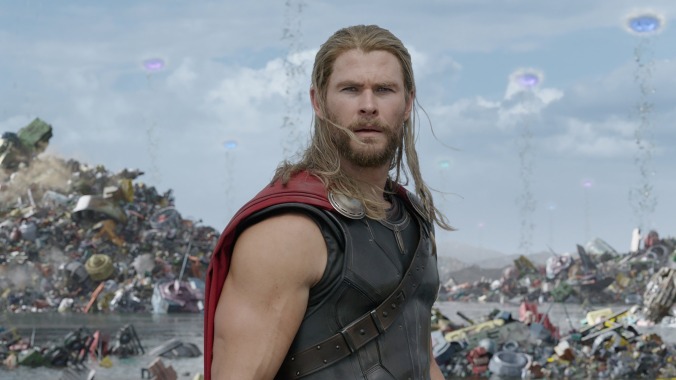
When we first meet Thor in his self-titled movie debut, his primary conflict is an internal need to prove himself, to be worthy of the hammer and the status afforded to him by his royal godhood. Chris Hemsworth’s Golden Boy looks and knack for fish-out-of-water comedy were enough to sell that arc in a reasonably solid way, but what’s given Thor a true sense of staying power is the latter-day evolution of the character which began with . These days, Thor’s natural, rakish immaturity is still deployed for plenty of comedy, but there’s a deeper pathos behind Hemsworth’s eyes. The tremendous weight of being a god is evident on Thor’s chiseled shoulders now, and that’s made the character all the more satisfying. [Matthew Jackson]
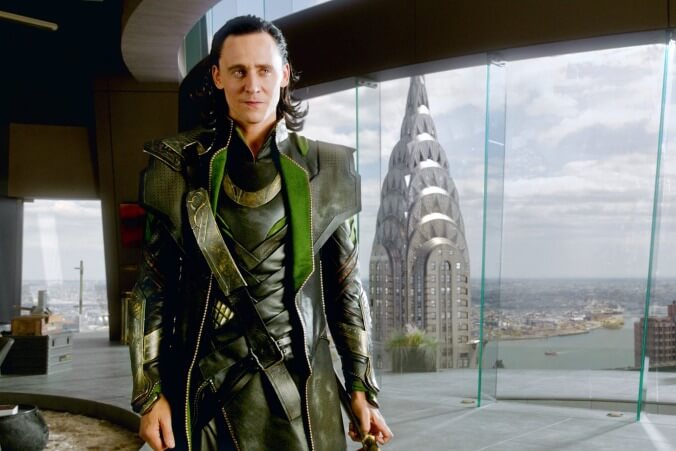
The genius of Tom Hiddleston’s Loki is all in the way he carries himself—as though deeply, perpetually affronted by the bickering, chaotic, silly Marvel universe he’s been asked to rule above. It doesn’t hurt that Hiddleston can flip the character’s whole demeanor in a second; tyrannical and terrifying one moment, pathetic and hilarious the next, and always, way deep down, the little brother hoping his big bro will notice his latest scheme, or joke, or potential planet-crushing alien invasion. The quintessential MCU villain, Loki is a killer, a chew toy, a punching bag, and more; he’s also the franchise’s ultimate answer to the question “How far can you coast on charm?” with the answer apparently being to the end of time … and back. [William Hughes]
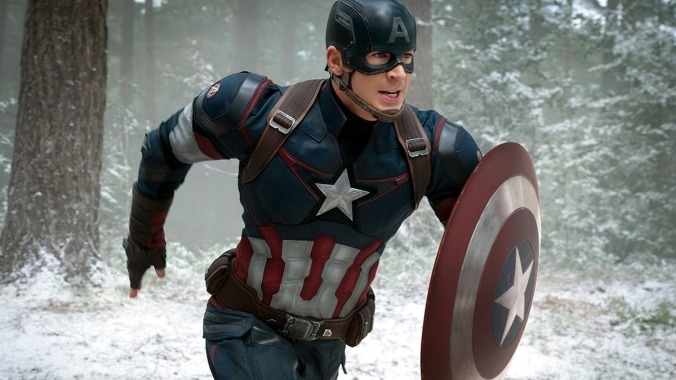
Without a shadow of a doubt, Chris Evans’ Captain America further solidified the MCU’s success. In fact, the Cap trilogy—, , and —can be regarded as a game-changing franchise for the MCU. With each film, Steve Rogers’ character development finds exciting new ground. He may initially appear as a bland, blonde, muscular man with a shield, but Evans turns the impression around in no time. Thanks to his performance, Steve transforms into a sharp, multidimensional character and natural leader over the course of his MCU appearances. From a hesitant hero who scolds “Language” when he hears curse words in response to the iconic “Avengers Assemble” scene in (a top 5 MCU moment), Cap’s growth is unparalleled. After decades of sacrificing himself for the world, it’s no wonder he got a happy ending with the love of his life—after all, it’s what “America’s ass” deserves. That, and being in the top 10 of this A.V. Club list. [Saloni Gajjar]
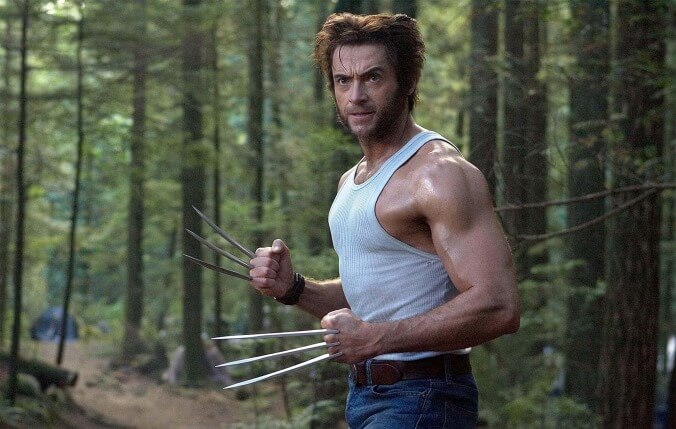
Early in the conception of this Marvel 100 list, our team realized an important criteria for inclusion was the actors embodying each character: if you hear the word Wolverine, and what comes to your mind is a side-burned, tank-topped Hugh Jackman baring his claws, that’s a sign of enduring cultural impact. One might even go so far as to call Jackman iconic, since cartoon depictions of Wolverine began resembling him more and more after 2000’s became a big-screen game-changer. His spin on the character—muscles and motorcycles and cigar-chewing swagger—became the definitive Wolverine, so much so that even the light reboot that was 2011’s re-cast every character but him. And Jackman’s best work may have been 2017’s critically lauded : the perfect swan song for one of Marvel’s biggest icons. [Jack Smart]
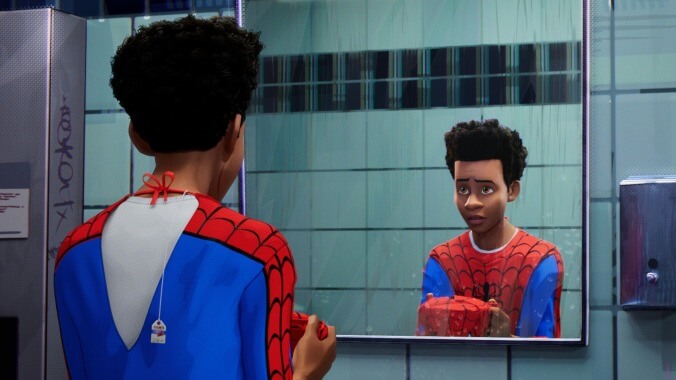
So much praise has been printed for that attempting to distill its impact into the confines of this paragraph feels impossible. But we’ll take the. Just when moviegoing audiences were reaching peak Spider-Man fatigue, along came the animated, multiverse-jumping Miles Morales, upending expectations and setting a bar for the character that has yet to be reached. The film finds Miles, voiced impeccably by Shameik Moore, figuring out how to put his authentic self into the shoes—or graffitied suit—of the Spider-Men before him. By leaning into the absurdity of the character’s countless comic book and cinematic iterations, Into The Spider-Verse dared to introduce a definitive new version for audiences to root for in Miles. And root for they did—and will continue to do with the (sadly delayed) Across The Spider-Verse installments. [Jack Smart]
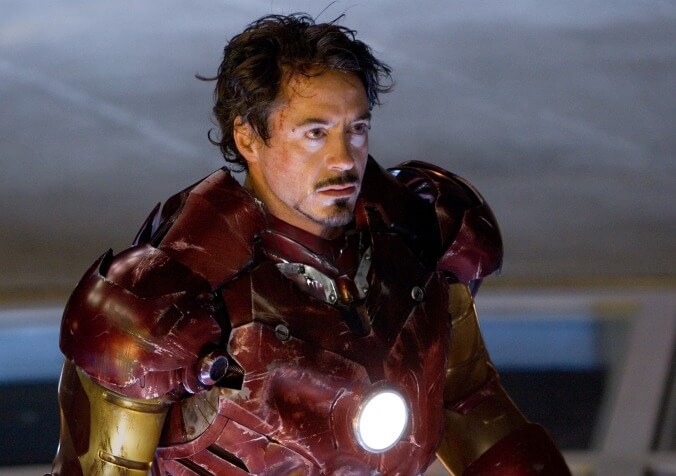
None of this works without Iron Man, to the point where the entire Marvel Cinematic Universe was shaped around his worldview, his sense of humor, and his egotism—both in terms of Kevin Feige crafting these movies and in terms of the actual canon of the MCU. The quippy version of the Avengers who are more like frustrated siblings than soldiers (or coworkers, which is often how the Justice League feels) wouldn’t happen without Tony Stark’s influence, and his status as someone who always tries to do the right thing, even if he doesn’t do it the right way or for the right reasons, still serves as an important moral backbone for the MCU. It’s why his last words—“I am Iron Man”—hit so hard in (even though they weren’t added until ). He wants everyone to know that he is making the ultimate sacrifice in a way that only he can, which perfectly sums up everything he does across all of those movies and why he’s so important to them. [Sam Barsanti]
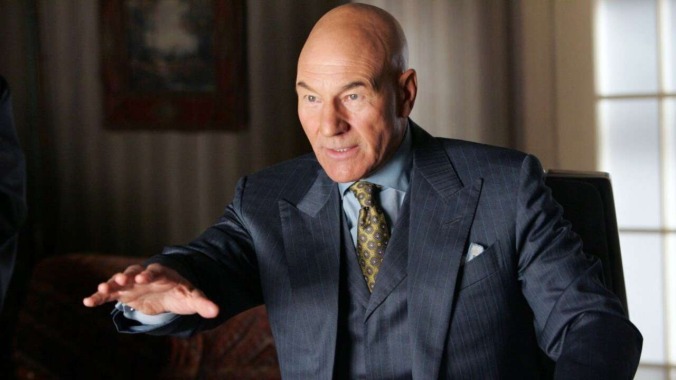
Cinematic superheroes don’t get much more iconic than X-Men mutant leader Professor Charles Francis Xavier, particularly since he’s played—in a whopping 11 films, the current record for longest career as a live-action Marvel character—by Sir Patrick Stewart. That voice. The quiet command he exudes from his wheelchair. The way he furrows his brow to speak telepathically. That voice! Seeing Stewart make his rumored, much-hoped-for reprise in the role in this year’s brought a flood of nostalgia for moviegoers who remember how the film franchise kicked off the modern renaissance of big-screen superheroes. It’s thanks to the willingness of quote-unquote serious thespians like Stewart, who can make the musings of a psychic-powered mutant sound like Shakespeare, that the genre gained legitimacy. [Jack Smart]
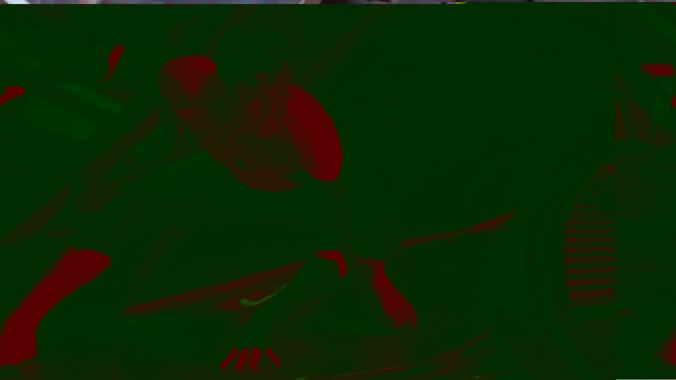
Tom Holland’s introduction as the third big-screen Spider-Man was a brief window in the middle of , but he made quite the impression as the talkative webslinger in just a few scenes. Still, there was always the chance that it was just a fluke, a moment of excitement brought on by the character’s long-demanded entry into the MCU. Then came , which allowed Holland to re-enact one of Spidey’s greatest comic book moments. Trapped under a mountain of rubble, with no one to save him, Holland’s Peter Parker had to muster the courage and strength to save himself. It’s a performance that showcases the extraordinary pivot between hero and child that Holland has mastered, and it’s made him an indispensable part of the post- universe. [Matthew Jackson]
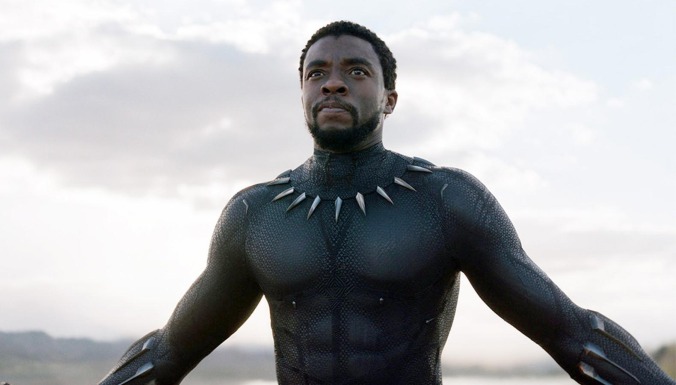
Was there any other choice for this list’s top spot than the Black Panther, T’Challa, King of Wakanda? He’s the best MCU character by so many metrics—cultural impact, critical acclaim, sheer badassery—that we had no choice but to give his highness one more crown. As the first superhero of African descent to appear in comics and then big-budget films, T’Challa has more than just the hallmarks of Marvel heroism; he’s a symbol of Black excellence and power, a character who embodies Afrofuturist ideals, an incalculable source of inspiration for so many. But equally impactful was—and always will be—the actor who brought him to life. The MCU needed a star who could embody greatness onscreen and provide inspiration offscreen, and they found it in Chadwick Boseman. The game-changing legacy of his performance as T’Challa, especially in Ryan Coogler’s film, which earned unprecedented SAG and Academy Awards, cannot be overstated. And the fact that we lost Boseman far too soon in 2020, cutting short his onscreen reign, gives us one more sentimental reason to name T’Challa our all-time favorite Marvel character. [Jack Smart]
 Keep scrolling for more great stories from A.V. Club.
Keep scrolling for more great stories from A.V. Club.
